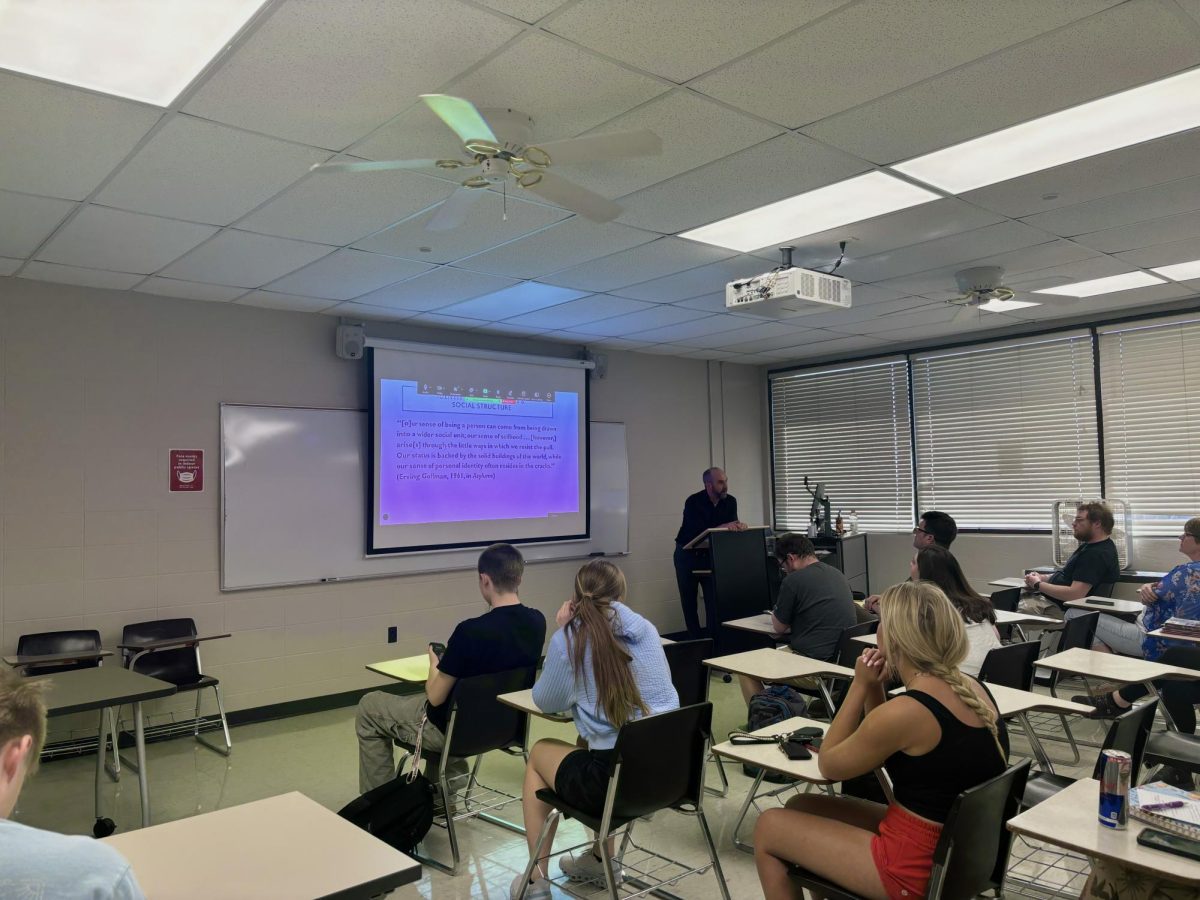The WKU Department of Society, Culture, Crime & Justice Studies hosted its monthly Brown Bag Lecture Series on Wednesday where students learned from those involved in their field.
The Brown Bag Lecture Series aims to share ongoing research by students and faculty and encourages students to bring their lunch to eat while listening. Wednesday’s event featured Justin Smith, a WKU criminology professor.
Smith spoke about formerly incarcerated activists and his research alongside Aaron Kinzel, a formerly incarcerated activist and PhD student at the University of Michigan.
“These are people who spend years and years behind bars and then came out and became successful, kind of the exception to the rule,” Smith said. “In a lot of ways, for people to come out of prison they become very civically engaged and have been successful in changing some laws.”
Smith was a professor at Central Michigan University in Lansing, Michigan when Michelle Alexander, author of “The New Jim Crow,” came to speak on mass incarceration and prisons. Through that event, Smith became connected to a prisoner reentry program, based in Lansing, that helped prisoners with the basics of reintegrating into society.
“When you come out of prison, sometimes you don’t have anything more than your prison ID,” Smith said.
After finding this program, Smith became heavily involved in criminal justice reform. He found numerous events and organizations pushing for change in Michigan’s prison systems and beyond. He also met Kinzel during his time in Michigan.
“So we literally meet with elected officials, the state representatives, state senators, and talk to them like, ‘Hey, this is what needs to change around our criminal justice system,’” Smith said. “I started to figure out a lot of people leading these organizations, working towards political change in the State Capitol of Michigan, had done time.”
Smith said he realized he could do more for incarcerated people as a researcher than as a volunteer. Smith’s and Kinzel’s research involved interviewing 32 people affected by the criminal justice system who wanted to create change and reform.
Through the interviews, Smith saw a view into the lives of those incarcerated and what pushed them to pursue civic engagement. One example Smith gave was of a woman named Elizabeth who was convicted of first-degree homicide and spent 25 years in Michigan State Prison.
While incarcerated, Elizabeth was active in civic engagement, pushing for women’s rights. She met a woman named Janice while inside prison, and together, alongside other women who wanted reform, they went on to establish a law library within the walls of the “valley” (what they called the prison). Janice also went on to help Elizabeth sort out how to appeal her case, as Janice had done so before.
Elizabeth then signed up for law classes in civil and criminal procedures where women came together to figure out their cases and what getting an appeal looked like for them.
“I ended up with seven lifers in the dining room,” Elizabeth said in her interview with Smith, “And I started taking this class, and this teacher had just graduated from University of Detroit Mercy, so she walked in and said, ‘Here’s what we’re going to do. Here’s what we’re going to study.’ She had a book, she had a plan.”
Elizabeth went on to help others within the prison and was the key plaintiff in the 1977 case Glover v. Johnson, which pushed for gender equality in prisons in terms of education.
He talked about how society has a preconceived notion of who felons and criminals are.
“It doesn’t come easy,” Smith said. “People come back and there’s a lot of stigma with their own families.”
Smith said he wants to inspire younger generations. He said he hopes the stories of these formerly incarcerated activists can inspire those who feel hopelessness within an uneasy political climate.
“Our sense of being a person can come from being drawn into the larger social unit,” Smith said. “Our sense of selfhood, however, arises through the little ways in which we resist the pull.”








